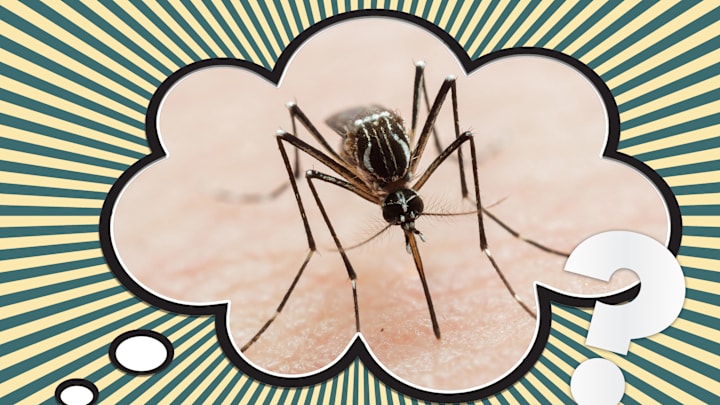That familiar tingle, that little pinch, that harbinger of things to come—if it’s mosquito season, you know it well. It’s a bug bite, and it’s probably about to make you (and your skin) feel pretty itchy. And you might feel itchy just thinking about feeling itchy. Sorry about that!
There are lots of reasons why some people are more prone to mosquito bites than others (most of which you can’t actually change). Scientists have theorized that your blood type or the composition of your skin’s microbiome may make you more attractive to the insects, while a 2022 study suggested that carboxylic acid, a compound made by sebaceous glands in your skin, is the real mosquito magnet. The study’s experiment showed that the more carboxylic acid the participants produced, the tastier they were.
Now let’s examine why those unavoidable bites can make skin crawl, tickle, and just plain itch.
That telltale itch doesn’t actually come from a bite. It comes from something that’s a fair bit worse: literal blood-sucking. A female mosquito uses her needle-like mouthparts (technically called a “proboscis”) to poke around on your skin in order to find the closest blood vessel, which she then uses to suck out blood as a snack. This process classifies her as an ectoparasite. The itchiness comes from her saliva, which she injects into her prey both before and during the actual blood extraction. It’s a clever tool, because her saliva serves as an anticoagulant that keeps the blood flowing during consumption.
(Fortunately for humans, male mosquitoes don’t feast on blood, but research has shown that they will still hang out around people—probably because they’re on the prowl for female mosquitoes.)
The human immune system responds to foreign intrusions like mosquito saliva by creating histamines, which make the blood vessels around the mosquito bite swell and create a “wheal” on the skin. That wheal is the bump that is so often referred to as a mosquito “bite.” All that swelling often disturbs nearby nerves, which then react by making your skin itch.
Don’t scratch too hard, though; it will only make the itching and inflammation worse, and breaking the skin by scratching can leave you susceptible to bacterial infections. The best way to calm the irritation is to apply calamine lotion, an over-the-counter hydrocortisone cream, or an ice pack. The real invader will have long since flown away, blood-filled belly and all.
Discover More Answers to Big Questions:
A version of this story was published in 2015; it has been updated for 2024.

